
Don Maier
Associate Professor of Business, University of Tennessee
Don Maier is an associate professor of practice in supply chain management. His professional career included roles in the logistics and supply chain management teams at FedEx, Office Depot, Penske Logistics, Monsanto and Merisant (a division of Monsanto). He was instrumental in the strategic design and leadership of the international logistics operation for North and Central America and managed the design and development of the total productive manufacturing quality culture at Merisant, focusing on the principles of 5S and Lean.
During this time, Maier earned a doctorate in organization development and a master’s in organizational behavior from Benedictine University in Lisle, Illinois, and taught a variety of management-related courses. At this time, he decided his long-term goal was to teach and help students develop and earn a professional career.
Maier started his full-time academic career as an assistant professor at the University of St. Francis in Joliet, Illinois, where he earned tenure, the Excellence in Teaching Award and the Alumni Board Presidential Award. He also was a member of the Will County Health Department’s Emergency Response Team, where he designed and managed the distribution of pharmaceuticals during the 2009 H1N1 influenza outbreak. He served on Will County Center for Economic Development’s logistics advisory board, helping transform Joliet into the inland empire of the Midwest.
He held the rank of professor at two universities and for the past nine years and served as dean for the Maine Maritime and Cal Maritime Academies. As the founding dean for the School of Maritime Transportation, Logistics, & Management at California State University – Maritime Academy, he oversaw programs in marine transportation, international logistics and naval science (Strategic Sealift Midshipmen Program).
Less ![]()
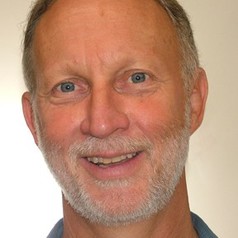
Don Weatherburn
Director of the NSW Bureau of Crime Statistics and Research; Adjunct Professor, School of Social Science, UNSW Australia
Don Weatherburn has been Director of the NSW Bureau of Crime Statistics and Research since 1988. He was awarded a Public Service Medal in January 1998, an Alumni Award for Community Service by the University of Sydney in 2000 and made a fellow of the Academy of Social Sciences in Australia in 2006. He is an Adjunct Professor in the School of Social Science at the University of New South Wales and is the author of three books and more than 200 articles, reports, and book chapters on crime and criminal justice.
Less ![]()

Donal O'Shea
Professor of Chemistry, RCSI University of Medicine and Health Sciences
The central theme of my research lies in the advancement of new strategies for the synthesis and functional assessment of structurally complex molecules. Specific goals include the development of NIR fluorophores for fluorescence guided surgery, new light activated anti-cancer agents, and the generation of chemical tools to assist in gaining a molecular level insight into biological processes. My research has its foundations in organic chemistry and chemical biology with strong collaborative links with medical imaging.
Less ![]()

Donal Smith
Postdoctoral Researcher in Conservation, Zoological Society of London
My background combines academic research of major issues in conservation with practical on-the-ground experience of the management of highly threatened species.
I spent many happy years working with the echo parakeet in Mauritius and the hihi in New Zealand. These projects showed me the power of careful conservation interventions led by passionate groups of people, resulting in beautiful bird species slowly reclaiming their native forests.
More recently, my research has focused on how we conduct this type of work globally. I have been particularly interested in the conservation of species that have disappeared entirely from the wild but somehow survived in places like zoos and botanic gardens. These "Extinct in the Wild" species need our urgent attention and support to avoid slipping away entirely and to return to their wild habitats.
Less ![]()

Donald Abelson
Professor, Political Science; Academic Director, Wilson College of Leadership and Civic Engagement, McMaster University
Faculty of Social Sciences, McMaster University
Professor, Political Science, Faculty of Social Sciences
Professor Emeritus, Western University,
Academic Director, Wilson College of Leadership and Civic Engagement,
Director, Brian Mulroney Institute of Government, Steven K. Hudson Chair in Canada-US Relations, and Professor, Political Science, Political Science, St. Francis Xavier University
Adjunct Research Professor, Political Science, Western University
Professor, Western University,
Associate Professor, Political Science, Western University
Assistant Professor, Western University,
Less ![]()
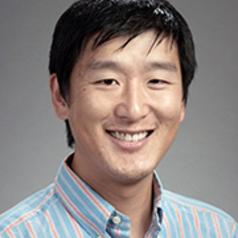
Donald Chi
Professor of Oral Health Sciences, University of Washington
Donald L. Chi, a board-certified pediatric dentist and health services researcher, is a Professor of Oral Health Sciences and Associate Dean for Research in the University of Washington School of Dentistry. He is also a Professor in the Department of Health Systems and Population Health in the School of Public Health.
His research focuses on children’s oral health. He draws on knowledge from the social and behavioral sciences, with the goal of eliminating inequalities and improving oral health for vulnerable populations. Dr. Chi has published over 150 peer-reviewed journal articles. Dr. Chi has been Editor-in-Chief of the International Journal of Paediatric Dentistry since 2021.
He teaches public health and clinical pediatric dentistry, and treats patients at the Odessa Brown Children's Clinic in Seattle's Othello neighborhood.
Less ![]()
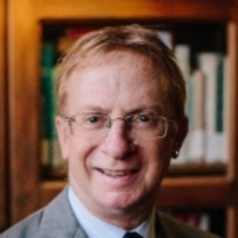
Donald E. Heller
Donald E. Heller is Provost and Vice President of Academic Affairs and a professor of education at the University of San Francisco. He is responsible for the university’s five schools, libraries, academic affairs, student life, enrollment management, online programs, international relations, and diversity and community outreach for the university’s 10,800 students,1,200 faculty, and 1,000 staff.
His teaching and research is in the areas of educational economics, public policy, and finance, with a primary focus on issues of college access, choice, and success for low-income and minority students. He has consulted on higher education policy issues with university systems and policymaking organizations in California, Colorado, Florida, Kansas, Massachusetts, Michigan, New Hampshire, Tennessee, Washington, Washington DC, and West Virginia, and has testified in front of Congressional committees, state legislatures, and in federal court cases as an expert witness.
Prior to his appointment in January 2016, he was Dean of the College of Education at Michigan State University. Earlier appointments included Director of the Center for the Study of Higher Education and professor of education and senior scientist at The Pennsylvania State University, and assistant professor of Education at the University of Michigan. Before his academic career, he spent a decade as an information technology manager at the Massachusetts Institute of Technology.
Less ![]()
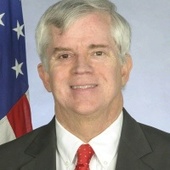
Donald Heflin
Executive Director of the Edward R. Murrow Center and Senior Fellow of Diplomatic Practice, The Fletcher School, Tufts University
Less ![]()
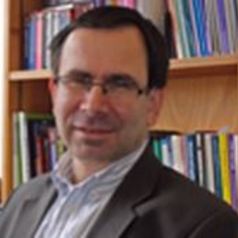
Donald Hirsch
Donald is a former journalist and international policy consultant, who was Poverty Adviser to the Joseph Rowntree Foundation for the ten years prior to joining CRSP in 2008. He played a central role in establishing A Minimum Income Standard for the United Kingdom, CRSP's ongoing research programme showing what incomes households need for an acceptable standard of living as agreed by members of the public.
Donald is the Director of the Centre for Research in Social Policy. He leads that programme and associated projects studying income, and plays a prominent national role in commenting on the adequacy of the public welfare system and on poverty trends.
Less ![]()
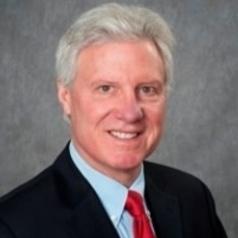
Donald Jurivich
Chair of Geriatrics, University of North Dakota
Dr. Jurivich was named the Eva L. Gilbertson, M.D., Distinguished Chair of Geriatrics at the UND School of Medicine & Health Sciences in 2015. He is a nationally known and respected clinician who has conducted extensive research on aging and age-related diseases and their treatment. Dr. Jurivich works collaboratively with faculty and institutional leaders to further the Department of Geriatrics, and develop and provide oversight of the department's education, research, clinical care, training, and service programs. As chair, he works with the SMHS's clinical partners to innovatively meet the need for education and training of current and future health professionals to effectively serve an aging population.
Dr. Jurivich earned his osteopathic medicine doctorate from the Midwestern University, Chicago College of Osteopathic Medicine. His residency training was completed in internal medicine at Rush Medical Center in Chicago and the Duke University Medical Center in Durham, N.C., where he also completed a fellowship in geriatric medicine. Dr. Jurivich is a Diplomate in Geriatric Medicine, which he earned from the American Board of Internal Medicine.
Dr. Jurivich’s research and scholarly interests are Alzheimer’s and other chronic diseases of the elderly. He receives research support from the National Institutes of Health’s National Institute of Aging (NIA)—the primary federal agency supporting and conducting Alzheimer's disease research—the U.S. Department of Veterans Affairs, as well as medical research foundations. He has contributed to 47 publications on aging research and clinical care of the elderly. His award-winning research has received recognition from the NIA and the Department of Veterans Affairs.
Dr. Jurivich is a member of the American Geriatrics Society, where he served on the board of directors, the American Medical Directors Association, the Illinois Geriatrics Society, the Gerontological Society of America, the Central Society for Clinical and Translational Research, American Medical Association, American Osteopathic Association, and the Institute of Medicine of Chicago.
Less ![]()

Donald McKnight
James Cook University
I am a PhD candidate in the College of Science and Engineering at James Cook University. I am currently studying how populations respond to and recover from outbreaks of emerging infectious diseases. However, I have very broad interests within ecology, and I have also done research on community ecology, population ecology, animal behavior, and natural history.
Less ![]()
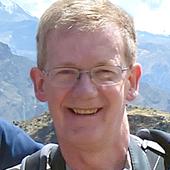

Donald Nieman
Executive Vice President for Academic Affairs and Provost, Binghamton University, State University of New York
Donald G. Nieman, a historian whose specialty is law and race relations and civil rights in the United States, became dean of Harpur College of Arts and Sciences in 2008, after serving as dean of arts and sciences at Bowling Green State University in Ohio for eight years. An Iowa native, he is a Phi Beta Kappa graduate of Drake University. He earned his PhD at Rice University, where he developed a passion for teaching and research and a deep commitment to balancing discovery and mentoring.
Nieman taught at Kansas State University, Hunter College, Brooklyn College and Clemson University before becoming professor and chair of the History Department at Bowling Green in 1994. He was promoted to dean there in 2000.
He has authored two books and edited four others. In 1991, Oxford University Press published his book Promises to Keep: African-Americans and the Constitutional Order, 1776 to the Present, which has been called the first Afrocentric history of the U.S. Constitution.
Less ![]()

Donald Thomson
Emeritus Professor, Faculty of Health, Deakin University
Fields of research:
- Applied and developmental psychology
- Cognitive and computational psychology
- Criminology
- Law in context
- Specialist studies in education
Less ![]()


Donald M. Lamkin
Assistant Professor of Psychiatry and Biobehavioral Sciences, University of California, Los Angeles
I received my Ph.D. in health psychology from the University of Iowa before completing post doctoral training in neuroimmunology and cancer biology at UCLA. My research focuses on biobehavioral mechanisms in cancer control, including associations among psychosocial factors, stress biology, and physical exercise. Using preclinical models of cancer and bioinformatic analysis of functional genomics, I test hypotheses on how stress physiology may affect progression of malignancy, particularly in regard to the sympathetic nervous system and during physical exercise. With an eye toward translation to clinical populations, I also collaborate with clinical investigators at the UCLA Jonsson Comprehensive Cancer Center.
Less ![]()
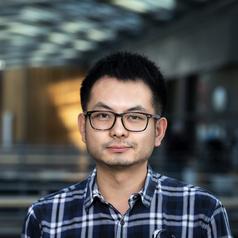
Donghao Lu
Associate Professor of Epidemiology, Karolinska Institutet
My research program is to study women’s mental health over the life course and to bridge the gap between Obstetrics/Gynecology and Psychiatry. Leveraging international large-scale population-based cohorts, I aim to understand the underlying biological mechanisms affecting women’s mental health and potential health consequences. My current main research topics are:
1) Risk factors and health consequences of reproductive mood disorders or sex-specific mental disorders, including:
° premenstrual disorders (premenstrual syndrome and premenstrual dysphoric disorder)
° perinatal depression (prenatal and postnatal depression)
° perimenopausal depression and menopausal symptoms
° other maternal mental disorders occurred during and after pregnancy
2) Sex disparity in mental health
Grants:
My research work is supported by the Swedish Research Council (VR), Swedish Research Council for Health, Working Life, and Welfare (Forte), China Scholarship Council, and Karolinska Institutet Strategic Research Area in Epidemiology and Biostatistics (SFOepi), Faculty Board, Board of Doctoral Education, and Research Fund.
Contributions to Science:
1) Early life origins and risk factors of premenstrual disorders
Premenstrual disorders are typically diagnosed in women in their 20s/30s, but my research has shown that the symptoms often begin during adolescence. In fact, in a sample of young women in the US, I found that approximately 70% of premenstrual disorders had onset before the age of 20. However, little was known about the factors in early life that may predispose these women to the onset of premenstrual disorders during adolescence. Through my studies, I have identified several important risk factors for premenstrual disorders developed later in life, including early menarche or pubertal development, adverse childhood experiences, childhood overweight or obesity, and childhood asthma or food allergy. These findings have significantly contributed to the understanding of the early life origins of the pathophysiology of premenstrual disorders.
2) Health impact of premenstrual disorders
Although premenstrual symptoms are restricted to the days before menstruation, the chronic and cyclic condition may translate to a profound impact on the long-term quality of life. However, there is a lack of prospective data to understand the health consequences of premenstrual disorders. My research is the first to demonstrate that patients with premenstrual disorders are at increased risks of subsequent suicidal behavior, accidents, perinatal depression, early menopause and severe menopause symptoms, premature death, and eventually contribute to the sex gap in mental health. We also found that use of hormonal contraceptives, particularly combined products, may reduce the rates of suicidal behaviors among women with premenstrual disorders.
3) Health impact of perinatal depression
Maternity care typically prioritizes pregnancy outcomes, often sidelining women’s mental well-being. Perinatal depression affects as many as 10-20% of women giving birth worldwide. In contrast to the common belief that perinatal depression is self-resolving, many cases can last for months or even longer, particularly if left untreated. However, prospective data are lacking to illustrate whether women with perinatal depression may confront enduring health consequences. My research is among the first to demonstrate that patients with perinatal depression are at increased risks of subsequent suicidal behavior, autoimmune disease, cardiovascular disease, and mortality.
Less ![]()

Dongryeol Ryu
Professor, The University of Melbourne
Prof Ryu works on on developing methods to utilise remote sensing instrument (microwave, optical and thermal sensors) in monitoring soil moisture and vegetation over agricultural and natural landscapes. He also develops novel methods to integrate hydrological/crop models with in situ and remotely sensed observations to improve conventional model-based predictions. Lastly he uses coupled Earth System Model to investigate how agricultural actives and large in-land water bodies influence regional climate.
Less ![]()

Donna Curtis Maillet
Privacy Officer, New Brunswick Institute for Research, Data and Training, Research associate, Faculty of Law, University of New Brunswick
I have been the Privacy Officer for the New Brunswick Institute for Research, Data and Training (NB-IRDT) since it originated in 2015. Since 2018, I have had the privilege to serve as the Privacy Team Lead for the Health Data Research Network, of which NB-IRDT is a member. In 2021, I began an appointment as a research associate with the UNB Faculty of Law and serve as part-time lecturer in sociology and public policy at St. Thomas University. My research work focuses on the intersection between law, policy, and privacy particularly in relation to research work involving large data sets of personal and personal health information.
Less ![]()
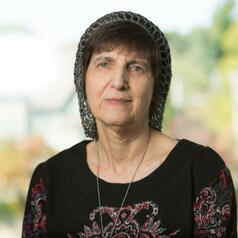
Donna L. Halper
Associate Professor of Communication, Lesley University
Donna L. Halper is a former deejay, music director, and radio consultant, who spent more than three decades in broadcasting before reinventing herself as a professor and a media historian. She came to Lesley University in 2008 to develop and teach courses related to the study of communication and media, including Media Analysis, Introduction to Communication, and Introduction to Journalism.
A devotee of a school of thought called Media Ecology (which focuses on the media as environments), Donna’s teaching is informed by her knowledge of popular culture, media history, and media effects. She is the author of six books and many articles, and she has been widely quoted by reporters seeking information about local and national media trends.
Her research interests include the study of representations of women and minorities in media; early baseball history; and unsung heroes and heroines in the history of broadcasting. Donna is often a guest on local radio talk shows, and she has also been heard on a number of podcasts and seen on numerous webcasts.
In addition to teaching, Donna is the editor of the Lesley Public Post (Lesley University's student newspaper). She is also a blogger, and a frequently-published freelance writer whose articles have appeared in print and online. She has given many guest lectures at libraries, civic organizations, and other universities, both in-person and on Zoom. And she is known for having discovered the classic rock band Rush, who dedicated two albums to her; she can be seen in the 2010 documentary “Beyond the Lighted Stage.” In 2023, Donna was chosen for induction into the Massachusetts Broadcasters Hall of Fame, where she received the Pioneer Broadcaster Award. Donna’s hobbies include reading, stamp collecting, and collecting rare memorabilia about media history.
Donna Halper holds a BA in English from Northeastern University, an M.Ed in Counseling and an MA in English from Northeastern University, and a PhD in Communication from the University of Massachusetts at Amherst.
Less ![]()
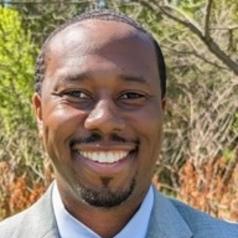
Donovan A. Watts
Assistant Professor of Political Science, Auburn University
Dr. Donovan A. Watts is an Assistant Professor in the Department of Political Science at Auburn University. Dr. Watts’ research interests include American Politics, Black politics, racial and ethnic politics, political behavior, and political socialization. His book project examines how the racialization of American politics has uniquely shaped the political attitudes and policy preferences of Black millennials.
Less ![]()

Dora Vargha
Professor of History and Medical Humanities, Humboldt University of Berlin
I am a historian of medicine, science and technology, with expertise in the history of epidemics, the politics of health, and Cold War history. My work focuses on questions of global health and biomedical research in the Cold War era, using the locality of Eastern Europe as a starting point. My research is informed by gender history, history of childhood and disability history, and is in conversation with medical anthropology, sociological approaches and political science. I received my PhD in History from Rutgers University and before joining Exeter I was a research fellow at the Max Planck Institute for the History of Science, Berlin, and a postdoctoral fellow at Birkbeck, University of London.
My interest spans from the politics of epidemic management to public health systems and access to therapeutics. My book, Polio Across the Iron Curtain: Hungary's Cold War with an Epidemic was published open access in 2018 with Cambridge University Press. I have written on the global infrastructure of diphtheria antitoxin, the politics of vaccination in Eastern Europe, hospital care of disabled children in communist cotexts and about shifting epidemic narratives in historical analysis.
Less ![]()

Doreen Rumbidzai Tivenga
Dr Doreen Rumbidzai Tivenga is a lecturer at the University of the Free State, Bloemfontein, South Africa. Her PhD was on urban music in Zimbabwe and the hybrid forms it takes. She recently published her book titled Music and Urban Youth Identities: A study of Ghetto Youth Identities in Contemporary Culture and Politics in Zimbabwe.
Less ![]()
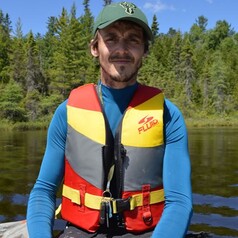
Dorian M. Gaboriau
Postdoctorant en paléoécologie, Université du Québec en Abitibi-Témiscamingue (UQAT)
Mes recherches se concentrent sur l'étude des interactions entre le climat, la végétation et les incendies dans la forêt boréale du Canada, à différentes échelles spatiales et temporelles. Pendant mon doctorat, j'ai reconstruit le régime des incendies à long terme dans le centre des Territoires du Nord-Ouest, et j'ai simulé la réponse de la végétation au climat et aux incendies à l'aide du modèle LPJ-LMfire pour les décennies à venir. Mes recherches actuelles se situent dans le domaine de la paléoécologie dans l'est du Canada, en tant que chercheur postdoctoral à l'institut de recherche sur les forêts à l'UQAT. Je participe activement au sein du réseau sur les forêts froides.
Less ![]()
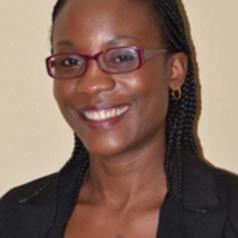
Doris Kakuru
Professor, School of Child and Youth Care, University of Victoria
My interdisciplinary scholarship is located at the intersection of Childhood Sociology and feminist thought. My work takes on a social justice perspective and is centered on various issues affecting children and youth in families and communities. Over the recent years, my community-based youth-led participatory research has been underpinned by intersectionality and post-colonial theories.
Less ![]()
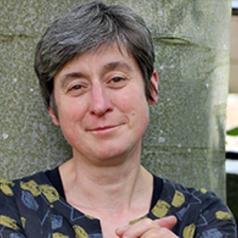
Doris Rohr
Senior Lecturer in Fine Art, Liverpool Hope University
Doris Rohr is a Senior Lecturer at Liverpool Hope University where she teaches theory and practice for Fine Art and Design students based at Liverpool Hope University's Creative Campus. After studying Three-Dimensional Design at West Surrey College of Art and Design, Doris decided to obtain a Master in Fine Art (Coventry Polytechnic), followed by a Master in Psychoanalysis and Philosophy (Essex University). Her PhD 'Drawing on Nature: the legacy of Ruskin's Moral Cosmos' (2016) investigates the continued relevance of John Ruskin's thoughts on drawing and the environment.
Doris' practice involves drawing, writing and the spaces in between; it is primarily paper-based, and frequently involves outdoor research into landscape. Fieldwork consists of walking, haptic interaction with site and notebook activities of plein air drawing and writing, underpinned by phenomenological encounter. Outreach activities involving drawing with members of the general public form an important aspect to my understanding of the value of drawing, creativity and art. Doris has contributed to drawing research through publications and through exhibiting.Teaching Specialisms:
Drawing practice and theory
European modernism
Conceptions of nature/ environment
Identity and sense of place
Art and Science
Less ![]()

Doris Taylor
Regenerative Medicine Lecturer, University of New Hampshire
As a pioneer in cardiovascular regenerative medicine from bench to bedside, Dr. Taylor is credited with a number of important scientific breakthroughs related to cell and gene therapy, stem cell biology, and tissue engineering. Her work has been published in Nature Medicine, Circulation Research, The Journal of Molecular Biology, The Journal of Biochemistry, Journal of the American College of Cardiology (JACC), Journal of the American Medical Association (JAMA), and other top-tier scientific journals. She holds a number of invention disclosures, patent applications and patents and is the founder of multiple companies dedicated to cardiovascular repair technologies. She is a member of the Society for Women's Health Research (SWHR) Cardiovascular Working Group and the Organization for the Study of Sex Differences (OSSD). Other professional affiliations include the American Association for the Advancement of Science (AAAS), the American Heart Association (AHA), and the Federation of American Societies for Experimental Biology (FASEB), among others. She recently served on the Executive Committee for the Alliance for Regenerative Medicine (ARM).
Dr. Taylor holds many honors including appointments as a Fellow for the American Heart Association (AHA), the American College of Cardiology and the European Society of Cardiology among other organizations. She has held faculty and or leadership appointments at Duke University Medical Center, University of Minnesota Medical School, Texas Heart Institute, Texas A&M University, and Rice University, as well as an honorary medical professorship in Krasnodar Russia.
Less ![]()

Dorit Donoviel
Executive Director/Associate Professor, Baylor College of Medicine
As Executive Director for the Translational Research Institute for Space Health (TRISH), Dorit Donoviel, Ph.D., leads a $0.25B NASA-funded innovation R&D program that finds, funds, and facilitates disruptive human health and performance solutions for astronauts traveling in deep space. In her previous role as deputy chief scientist of the National Space Biomedical Research Institute (NSBRI), Dr. Donoviel led both domestic and international research programs that bridged academic, industry, and government resources to deliver fast and cost-effective tangible results. Dr. Donoviel is an Associate Professor in the Department of Pharmacology and Chemical Biology and the Center for Space Medicine at Baylor College of Medicine (BCM) where she lectures and mentors graduate and medical students. She was recently named a BCM Woman of Excellence, was a long-time Faculty Senator, and was named a Health Policy Scholar for the Center for Medical Ethics and Health Policy at BCM. Dr. Donoviel received several awards from the NASA Human Research Program and is the recipient of the NSBRI Pioneer Award. Dr. Donoviel continues to author science thought leadership articles in academic journals as well as in the popular press.
Less ![]()


Dorothea Mylopotamitaki
Doctorante, Centre interdisciplinaire de recherche en biologie (CIRB), Collège de France
Je suis doctorante au sein de l'équipe Paléoanthropologie du CIRB. Mon principal intérêt de recherche est le développement de nouvelles méthodologies appliquées à l'ADN humain ancien et aux protéines. Mes thèses de licence et de maîtrise étaient toutes deux axées sur les tests et la modification de méthodes de récupération d'ADN ancien à partir d'os et de dents humaines. Le résultat de mon doctorat sera de développer et d'appliquer une nouvelle approche protéomique pour identifier les espèces biologiques de spécimens osseux archéologiques en criblant avec la technologie Orbitrap jusqu'à 200 échantillons par jour. Les avantages par rapport à l'empreinte de masse peptidique seront représentés par l'acquisition d'un ensemble de données beaucoup plus riche par échantillon, une sensibilité plus élevée, une automatisation plus élevée et la possibilité d'utiliser un logiciel d'identification spectrale standard.
Less ![]()
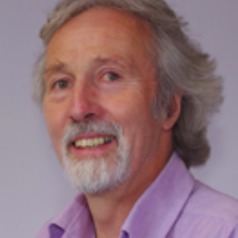
Dorrick Stow
Professor Dorrik Stow FRSE: Director, Institute of Petroleum Engineering; Director, Centre for Energy Economics Research & Policy; Professor of Petroleum Geoscience, Heriot-Watt University.
He is an internationally renowned geologist and oceanographer with an extensive record of scientific publications, including over 300 scientific papers, numerous books and edited volumes. He specialises in the deep sea and its sedimentary record – modern, ancient and subsurface. In pursuing this scientific quest he has sailed on all the world’s major oceans, and visited, lectured or worked in more than 50 countries. He has worked in and with the oil industry, particularly in their on-going quest for deep-sea oil and gas and on new and tight reservoir targets, and has led major international missions for scientific drilling into the deep Indian Ocean seafloor and the Gulf of Cadiz, as well as many other expeditions on land and at sea. He also maintains a strong interest in the field of geoscience, development and capacity building, especially concerning hazard mitigation, geoscience education and marine management. He is enthusiastic to popularise ocean and earth sciences through lectures, writing and broadcast.
Less ![]()

Dorsa Alipour
PhD Candidate, Swinburne University of Technology
Dorsa Alipour is a PhD researcher at Swinburne University of Technology, specialising in integrated land-use, transport, and environment/energy models for resilient urban planning.
Her research focuses are on sustainable urban development, clean energy, low-carbon mobility solutions, and smart mobility. Her work is aligned with Australia's Net Zero plan and Swinburne’s vision for a sustainable future, aiming to produce evidence-based research that promotes reducing fossil fuel dependency.
Less ![]()
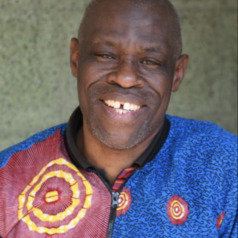
Dostin Lakika
Research Associate, University of the Witwatersrand
Dostin Lakika holds a PhD with a focus on migration and displacement at the African Centre for Migration and Society (ACMS), University of the Witwatersrand, Johannesburg. His research interests include the study of militarisation, violence, and memories; the exploration of (ir)regular migration, resilience, and (mental) health among refugees; and the examination of the relationship between food and illness. Lakika is also a reviewer for several peer-reviewed academic journals. He currently holds a research associate position at the ACMS and the French Institute of South Africa.
Less ![]()

Doug Angus
Assistant Professor of Psychology, Bond University
Dr Doug Angus recently joined Bond University as an Assistant Professor of Psychology. Prior to his engagement at Bond University, he held research positions at The University of Sydney, and The University of New South Wales. He completed my PhD at The University of New South Wales. Before this, he studied psychology at The University of Auckland. His research primarily focuses on how theories of motivation and emotion are informed by neuroscience and psychophysiology. His PhD research used electroencephalography to examine the time-course of neural activity involved in reward anticipation and consumption, and how these processes interact with anger and aggression. Dr Doug Angus’s current research agenda encompasses five broad areas; 1. Temporally and psychologically discrete aspects of reward processing 2. Anger and its association with positive emotional states 3. Self-regulation and decision making in emotional contexts 4. Meta-cognition about affective states 5. Frontal cortical-subcortical imbalances, cognitive function, and healthy aging
Less ![]()
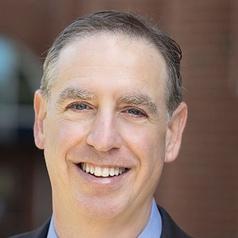
- Market Data























